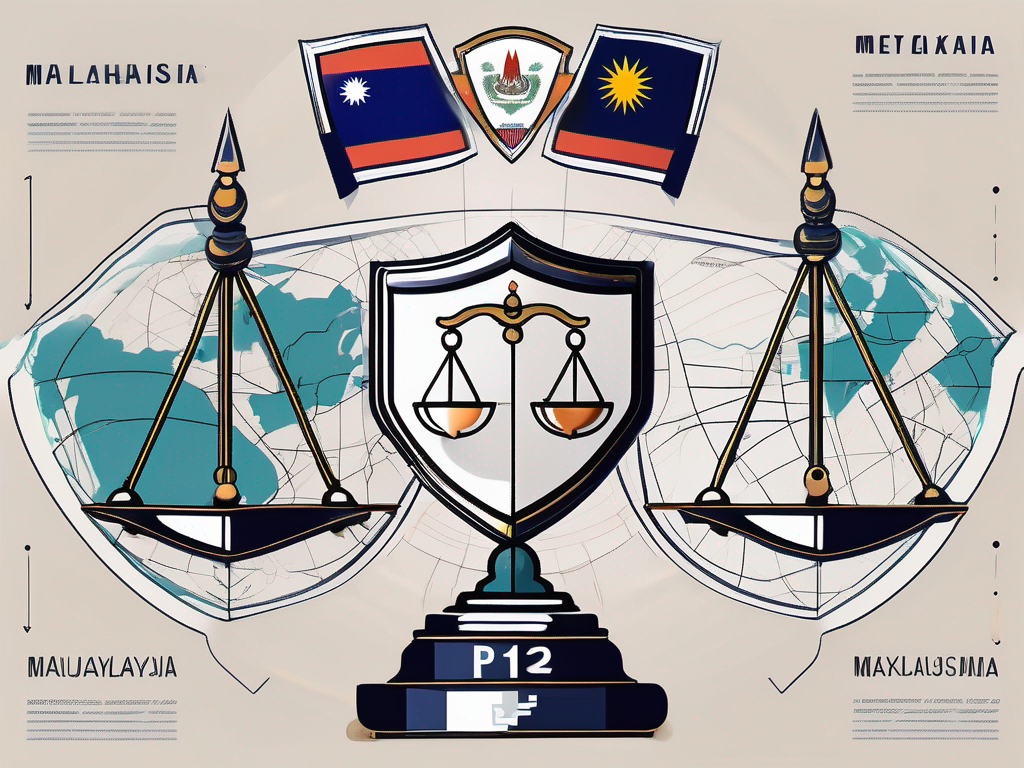Combating Fraud and Corruption: A Guide to the MACC Act for Malaysian Businesses
Contents
In today's business landscape, fraud and corruption pose significant risks to organizations operating in Malaysia. These unlawful activities can not only result in substantial financial losses but also tarnish a company's reputation and undermine public trust. As such, it is imperative for businesses to implement effective measures to combat fraud and corruption, safeguarding their operations and ensuring compliance with relevant laws and regulations.
The Malaysian Anti-Corruption Commission Act 2009 (MACC Act)
The Malaysian Anti-Corruption Commission Act 2009 (MACC Act) is a crucial piece of legislation that aims to prevent and combat corruption in the country. Administered by the Malaysian Anti-Corruption Commission (MACC), the Act provides a comprehensive legal framework for addressing corruption offences, including bribery, abuse of power, and other forms of misconduct.
Among the key provisions of the MACC Act are the criminalization of various corrupt practices, such as soliciting or accepting gratification (bribery), using office or position for gratification, and offenses related to the disposal of property acquired through corruption. The Act also establishes corporate liability for corruption offenses committed by individuals associated with commercial organizations.
Corporate Liability and the Adequate Procedures Defense
Section 17A of the MACC Act introduces a new form of corporate liability, making commercial organizations potentially liable for corruption offenses committed by individuals associated with them, such as employees, agents, or subsidiaries. This provision aims to hold organizations accountable for failing to prevent corrupt practices within their operations.
However, the MACC Act provides a statutory defence known as the "adequate procedures" defense. If an organization can demonstrate that it had implemented adequate procedures designed to prevent persons associated with it from undertaking corrupt acts, it may avoid liability under Section 17A.
The MACC has issued guidelines on what constitutes "adequate procedures," which include top-level commitment, risk assessments, due diligence procedures, communication and training programs, monitoring and review mechanisms, and effective whistleblowing channels.
Fraud and Corruption Risk Assessment
To effectively combat fraud and corruption, organizations must first understand their exposure to these risks. Conducting a comprehensive fraud and corruption risk assessment is crucial in identifying vulnerabilities and high-risk areas within the business.
The risk assessment should consider factors such as the nature of the organization's operations, the industries and jurisdictions in which it operates, the complexity of its organizational structure, the types of third-party relationships it maintains, and the effectiveness of existing controls and procedures.
By thoroughly assessing these risks, organizations can tailor their anti-bribery and anti-corruption programs to address their specific vulnerabilities and allocate resources effectively.
Developing an Effective Anti-Bribery and Anti-Corruption Program
An effective anti-bribery and anti-corruption program is essential for organizations to comply with the MACC Act and mitigate the risks of fraud and corruption. Key elements of such a program include:
- Top-level commitment and communication: Senior management must demonstrate a strong commitment to ethical conduct and communicate the organization's zero-tolerance policy towards bribery and corruption to all stakeholders.
- Risk-based due diligence: Organizations should conduct thorough due diligence on third parties, such as agents, intermediaries, and business partners, to assess their integrity and potential corruption risks.
- Training and awareness: Regular training and awareness programs should be provided to employees, emphasizing the organization's anti-corruption policies, procedures, and reporting mechanisms.
- Whistleblowing and reporting mechanisms: Establishing secure and confidential channels for employees and third parties to report suspected instances of fraud or corruption is crucial for early detection and mitigation.
- Monitoring and review: The anti-bribery and anti-corruption program should be regularly monitored and reviewed to ensure its effectiveness and address any emerging risks or regulatory changes.
Third-Party Risk Management
Third-party relationships, such as those with agents, suppliers, and business partners, can pose significant fraud and corruption risks to organizations. Organizations must exercise due diligence in selecting and managing these relationships, as they can be held liable for corrupt acts committed by individuals associated with them under the MACC Act.
Conducting thorough background checks, implementing robust contractual protections, and regularly monitoring third-party activities are essential steps in mitigating third-party risks. Organizations should also provide training and guidance to third parties on their anti-corruption policies and expectations.
Responding to Incidents and Investigations
Despite preventive measures, instances of fraud or corruption may still occur. Organizations must have clear procedures in place for reporting and investigating suspected incidents, as well as cooperating with MACC investigations when necessary.
Internal investigations should be conducted promptly and thoroughly, preserving relevant evidence and documentation. Appropriate disciplinary actions and remediation measures should be taken in response to confirmed incidents to address any control weaknesses and prevent future occurrences.
Criminal Offenses and Civil Actions Related to Fraud
The MACC Act is not the only legal framework relevant to combating fraud and corruption in Malaysia. Various provisions in the Penal Code and the Contracts Act 1950 also address fraudulent activities and provide legal recourse for victims.
Criminal Offenses
- Cheating (Section 415 of the Penal Code): Deceiving or fraudulently inducing another person to deliver property or consent to the retention of property is considered cheating and punishable by imprisonment, fine, or both.
- Cheating and dishonestly inducing delivery of property (Section 420 of the Penal Code): A more specific offense involving cheating to induce the delivery of property, punishable by imprisonment, whipping, and a fine.
Civil Actions
- Vitiating contract where consent is caused by fraud or misrepresentation (Section 14 of Contracts Act 1950): A contract entered into due to fraud or misrepresentation may be voidable, allowing the victim to seek legal remedies.
- Claiming negligence against financial institutions: In cases where a financial institution is negligent in preventing fraud, victims may pursue legal action for damages, as illustrated by the Koperasi Sahabat v RHB Investment Bank case.
Continuous Improvement and Monitoring
Combating fraud and corruption is an ongoing process that requires continuous improvement and monitoring. Organizations should regularly review and update their anti-bribery and anti-corruption programs to address emerging risks, regulatory changes, and best practices in the industry.
Fostering a culture of integrity and ethical conduct within the organization is also crucial. Regular training, clear communication from leadership, and effective whistleblowing mechanisms can contribute to creating an environment where fraud and corruption are not tolerated.
Conclusion
The Malaysian Anti-Corruption Commission Act 2009 (MACC Act) provides a robust legal framework for combating fraud and corruption in the country. By implementing adequate procedures and developing effective anti-bribery and anti-corruption programs, organizations can mitigate the risks of these unlawful activities and ensure compliance with the MACC Act.
Compliance with the MACC Act not only protects organizations from legal and financial consequences but also enhances their reputation and fosters a culture of integrity and ethical conduct. By taking proactive measures to combat fraud and corruption, businesses can create a more transparent and trustworthy environment, contributing to the overall economic and social well-being of Malaysia.
Related Posts
Time to reform your compliances
Kickstart your journey by exploring our products or book a demo with us.





